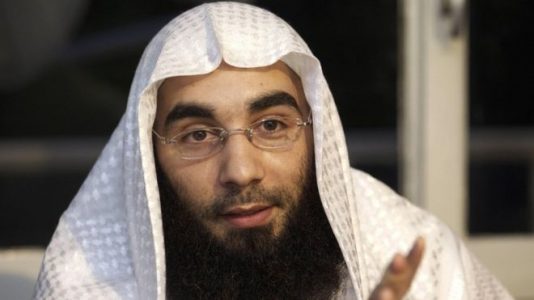
Belgian Islamist leader Fouad Belkacem loses his citizenship
Jailed Islamist Fouad Belkacem, whose group Sharia4Belgium sent dozens of jihadists to Syria, has been stripped of his Belgian citizenship and faces deportation to Morocco.
The appeal court in Antwerp ruled that he had fallen seriously short of his duties as a citizen. Belkacem was jailed in 2015 for leading a terror group, many of whose recruits joined jihadist group Islamic State.
More Belgians per capita went to fight in Syria than from any other EU state. Some of those who returned to Europe were involved in the Paris attacks in 2015 and the Brussels bombings of March 2016.
Belkacem’s Sharia4Belgium originated in Antwerp, recruiting the first Belgian fighters before it was disbanded.
It took its inspiration from Islam4UK, a group once led by Anjem Choudary, a radical preacher who was released from a British jail on 19 October. During Belkacem’s 2015 trial it emerged that he had co-founded Sharia4Belgium shortly after spending time at a London mosque.
Another group known as the Zerkani network recruited jihadists, such as Paris attacker Abdelhamid Abaaoud and Brussels bomber Najim Laachraoui, from the Molenbeek area of Brussels.
After he was given a 12-year jail term, Belgian officials began work on removing his citizenship. As a dual national he retains Moroccan citizenship.
Belgian Migration Minister Theo Francken praised the decision to strip Belkacem of his Belgian nationality, but added that such a move should be automatic after any terrorism conviction.
Removing citizenship from jihadists with dual nationality remains controversial. France announced plans to introduce the policy after the November 2015 attacks but dropped them the following year.
Belkacem is not the first Belgian linked to terror to lose his nationality. Malika el-Aroud was stripped of her citizenship last year for leading an al-Qaeda linked group.
He can still appeal against the decision to Belgium’s court of last resort, the court of cassation, or to the European Court of Justice.
His lawyer, Liliane Verjauw, said he no longer had any connection to Morocco and considered himself Belgian.
“His family has been here for 50 years, over three generations. His Belgian nationality is part of his identity,” she said.
Source: BBC





